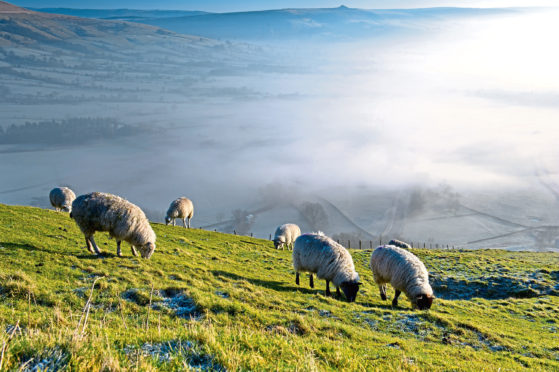Professor Davy McCracken of SRUC offers an insight into work at the rural college’s hill and mountain research centre
Upland enterprises such as hill farming, crofting, forestry and game management play an important role in supporting the rural economy and local communities.
Many of these enterprises already deliver some form of wider public benefit, be it carbon sequestration, flood mitigation or biodiversity conservation.
However, the priorities that land managers, rural communities and wider society place on such public benefits might currently conflict in any one area of Scotland.
And marked differences in regional character also mean those priorities will certainly differ from one part of Scotland to another.
But the scale of the climate emergency and biodiversity crisis means any one upland enterprise will need to deliver a much greater range of public benefits in the future.
We cannot shy away from helping to identify what outcomes would be most appropriate to deliver in different areas, thereby influencing future upland land management and land use change decisions across Scotland.
Past experience suggests gaining such consensus, even at a regional level, will not be easy.
Buy-in will be needed from the upland land managers who will primarily deliver the outcomes.
But agreement will also be needed from others in local rural communities and wider society who would not only benefit from those outcomes but will also need to live, to differing extents, with the consequences of any land use change.
The Scottish Government’s Land Use Strategy has been designed to provide a framework for ensuring all stakeholders are fully involved in that consensus setting process.
In particular, the Regional Land Use Partnerships proposed in the strategy potentially provides a mechanism to identify and resolve conflicting land management objectives.
It is, however, unclear how such partnerships would operate in practice.
To this end, colleagues in SRUC’s Rural Policy Centre – together with members of my team and colleagues from the Centre for Mountain Studies at the University of Highlands and Islands – will investigate this further later this spring.
By focusing in on one or two upland regions of Scotland, we will seek not only to identify who should be involved but also test how best to engage with those stakeholders and communities in discussions related to upland land use.
By doing such “sense-checking” we hope to help shed some light on the best practices to be followed in future conversations about integrating land management more fully across Scotland’s uplands.
